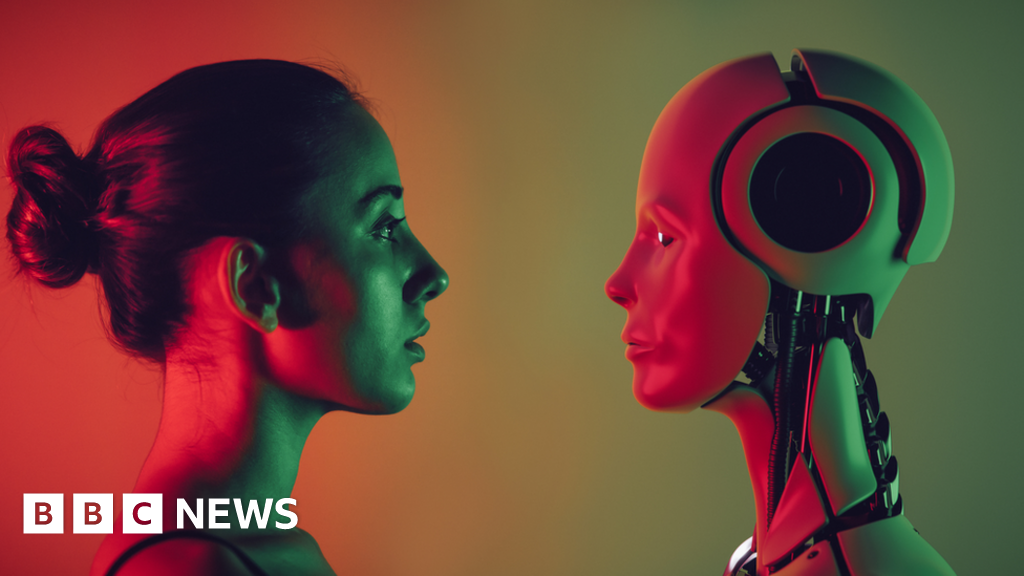A lot of aspects of contemporary life are changing as a result of the rapid development of artificial intelligence (AI) technology.
However, some experts worry that it might be used maliciously and endanger jobs.
AI enables a computer to function and respond just like a human.
In order to predict outcomes, resolve issues, and even learn from mistakes, computers can be fed enormous amounts of data and trained to find patterns within it.
AI is dependent on data as well as algorithms, which are sets of instructions that must be followed in a specific order to accomplish a task.
With the aid of the same technology that powers Siri and Alexa, voice-activated virtual assistants, Spotify, YouTube, and BBC iPlayer can now suggest what you might like to listen to next.
Additionally, it enables Facebook and Twitter to choose which social media posts to display to users and enables Amazon to analyze customer purchasing patterns to suggest future purchases.
ChatGPT and Snapchat My AI are two potent AI-driven programs that have risen to prominence in recent months.
A prime example of "generative" AI is ChatGPT.
This creates fresh, original content that has the appearance of being written by a human using the patterns and structures it discovers in enormous amounts of source data.
It is combined with a chatbot, a computer program that communicates with human users via text.
The program is capable of writing computer code, telling stories, and providing answers.
The system has only received data up to the year 2021, though. It can reproduce the bias present in its source material, such as sexism or racism, and occasionally provides users with incorrect answers.
Similar to this, My AI, Snapchat's AI chatbot, responds to commands with helpful human-like responses.
But My AI can also give incorrect responses in which it presents false or misleading information as fact. This is known as "hallucinating.".
There are concerns about which jobs AI might replace as it has the potential to revolutionize the workplace.
As some tasks and job functions become automated, a recent report by investment bank Goldman Sachs suggested that AI could eventually replace the equivalent of 300 million full-time jobs globally. In the US and Europe, that translates to about 25% of all the work that people currently do.
According to the report, a variety of professions and industries, including management, law, architecture, and administration, could be impacted.
However, it also identified a wide range of enormous potential advantages and projected that the use of AI would boost global GDP by 7%.
AI is already being used in some fields of science and medicine, such as breast cancer detection by doctors and the development of new antibiotics by scientists.
AI's rapid expansion may be risky, experts have warned, as there are currently few regulations governing how it is used. Some even advocate stopping AI research.
The man widely regarded as the father of artificial intelligence, Geoffrey Hinton, left his position at Google in May, expressing concern that AI chatbots might one day surpass humans in intelligence.
Later that month, a warning about the dangers of AI was released by the US-based Center for AI Safety, which had the support of numerous top tech experts.
They contend that it might be employed to spread false information that might undermine society and enable those in power to monitor and even repress the general populace.
In the worst case, machines might become so smart that they take control, causing the abolition of humanity.
Others, however, like tech pioneer Martha Lane Fox, advise against becoming "too hysterical" about AI and instead call for a more sober discussion about its potential.
Governments all over the world are debating how to control artificial intelligence.
The Artificial Intelligence Act is up for a vote in the European Parliament soon. It would establish the first and strictest legal framework for AI, which businesses would have to abide by, if it were to pass.
According to the EU's proposals, AI products would be rated based on their impact; for instance, an email spam filter would be subject to less regulation than a cancer-detection tool.
The UK, where the government unveiled its vision for the future of AI in March, would not be subject to these regulations.
It disallowed the creation of a separate AI regulator and declared that existing bodies would be in charge of keeping watch over the industry.
Due to privacy concerns, Italy was the first western nation to outlaw ChatGPT in April. A month later, after owner Open AI claimed to have resolved the problems, the ban was lifted.
The suitability of the current voluntary codes has also been questioned by US lawmakers. .
China wants to mandate user notification whenever an AI algorithm is used, in the meantime.







